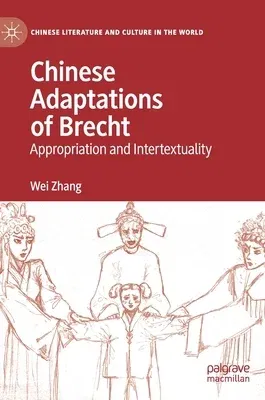Wei Zhang
(Author)Chinese Adaptations of Brecht: Appropriation and Intertextuality (2020)Hardcover - 2020, 9 April 2020

Qty
1
Turbo
Ships in 2 - 3 days
In Stock
Free Delivery
Cash on Delivery
15 Days
Free Returns
Secure Checkout

Part of Series
Chinese Literature and Culture in the World
Print Length
200 pages
Language
English
Publisher
Palgrave MacMillan
Date Published
9 Apr 2020
ISBN-10
3030377776
ISBN-13
9783030377779
Description
Product Details
Author:
Book Edition:
2020
Book Format:
Hardcover
Country of Origin:
NL
Date Published:
9 April 2020
Dimensions:
21.01 x
14.81 x
1.42 cm
ISBN-10:
3030377776
ISBN-13:
9783030377779
Language:
English
Location:
Cham
Pages:
200
Publisher:
Weight:
412.77 gm